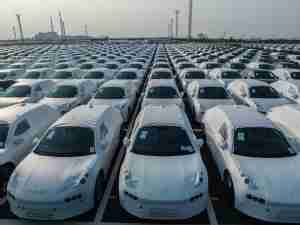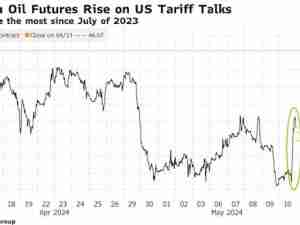Brexit Hurts Outlook for U.K. Fisheries as Trade Uncertain
By: Whitney McFerron | Jul 08 2016 at 09:36 AM | International Trade
The U.K.’s vote to leave the European Union will make it harder for British seafood exporters to compete with other countries, according to the United Nations’ Food & Agriculture Organization.
Four of the top five importers of British seafood exports are nations in the EU, according to data from industry group Seafish. While it’s uncertain what kind of trade relationship the U.K. will have with the bloc, it’s possible Britain will face tariffs in EU markets, said Audun Lem, deputy director of the FAO’s fisheries policy and resources division.
“We don’t know anything about the conditions or market access the U.K. will have to the EU, but certainly things are not going to be more favorable than they are today,” Lem said by phone Thursday from Rome. “U.K. exporters will have to face that difficulty in the future.”
The U.K. has two years to negotiate its EU exit after it officially triggers the process.
British salmon, primarily farmed in Scotland, is the U.K.’s largest seafood export product, with shipments valued at almost 540 million pounds ($700 million) last year, according to Seafish. The U.K. is the world’s third-biggest producer of Atlantic salmon, after Norway and Chile. Those two countries together account for almost 80 percent of global output, according to data from Rabobank International.
Import Duties
The EU imposes import duties on Norwegian salmon, which range from 2 percent on fresh and frozen products to 13 percent on smoked salmon and 15 percent on dried fillets. Scotland has a significant processing industry that exports smoked salmon, and those sales could take a hit if a similar duty is imposed on the U.K., Lem said.
Building up other new markets for trade may also be difficult because competing countries, including Norway, already have bilateral agreements with major importers, Lem said. Britain may have to start negotiations from scratch with trading partners outside the EU, he said.
Still, the U.K. on its own might have a better chance than the EU in regaining access to the Russian import market, said Gorjan Nikolik, a senior analyst at Rabobank in Utrecht, Netherlands. Russia banned imports of salmon from both the EU and Norway in 2014 in retaliation for sanctions over its incursion into Ukraine. The Faroe Islands, part of the Kingdom of Denmark but exempt from the Russian ban, saw a surge in salmon exports as a result.
The Faroe Islands “are the only European supplier to Russia, and they’ve benefited in a huge way from that,” Nikolik said. “I don’t think Scotland will have quite the same treatment as Faroe to Russia, but let’s see.”








